Chairman: OPEN
"Americanism is an unfailing love of country: loyalty to its institutions and ideals; eagerness to defend it against all enemies; undivided allegiance to the flag; and a desire to secure the blessings of liberty to ourselves and posterity."
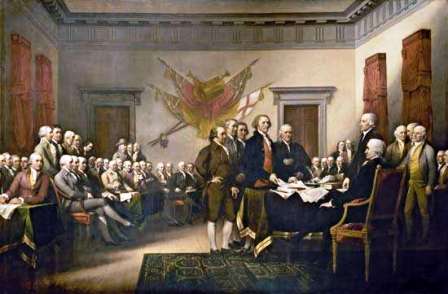
The Declaration of Independence was approved by the Continental Congress on July 4, 1776, and it announced the separation of 13 North American British colonies from Great Britain. It explained why the Congress on July 2 "unanimously” by the votes of 12 colonies (with New York abstaining) had resolved that "these United Colonies are, and of right ought to be Free and Independent States.” Accordingly, the day on which final separation was officially voted was July 2, although the 4th, the day on which the Declaration of Independence was adopted, has always been celebrated in the United States as a great national holiday.
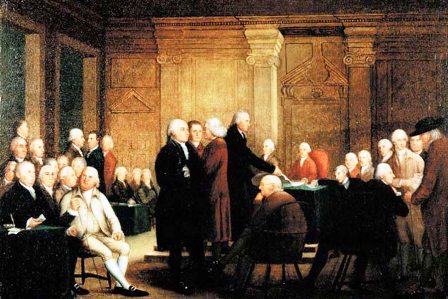 n
nThe Articles of Confederation was the first written constitution of the United States. Stemming from wartime urgency, its progress was slowed by fears of central authority and extensive land claims by states before was it was ratified on March 1, 1781. Under these articles, the states remained sovereign and independent, with Congress serving as the last resort on appeal of disputes. Congress was also given the authority to make treaties and alliances, maintain armed forces and coin money. However, the central government lacked the ability to levy taxes and regulate commerce, issues that led to the Constitutional Convention in 1787 for the creation of new federal laws.
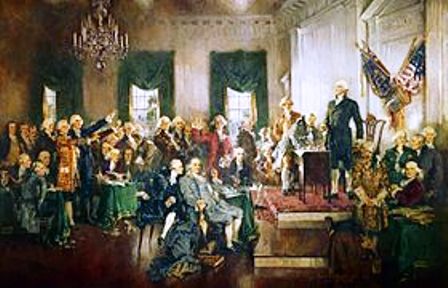
The Constitution of the United States established America’s national government and fundamental laws, and guaranteed certain basic rights for its citizens. It was signed on September 17, 1787, by delegates to the Constitutional Convention in Philadelphia. Under America’s first governing document, the Articles of Confederation, the national government was weak and states operated like independent countries. At the 1787 convention, delegates devised a plan for a stronger federal government with three branches—executive, legislative and judicial—along with a system of checks and balances to ensure no single branch would have too much power.
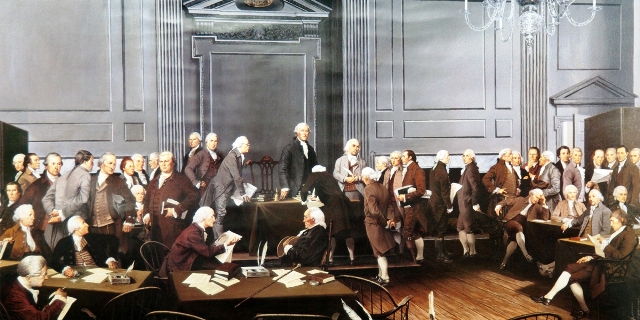
The first 10 amendments to the Constitution make up the Bill of Rights. James Madison wrote the amendments, which list specific prohibitions on governmental power, in response to calls from several states for greater constitutional protection for individual liberties. For example, the Founders saw the ability to speak and worship freely as a natural right protected by the First Amendment. Congress is prohibited from making laws establishing religion or abridging freedom of speech. The Fourth Amendment safeguards citizens’ right to be free from unreasonable government intrusion in their homes through the requirement of a warrant.
The Bill of Rights was strongly influenced by the Virginia Declaration of Rights, written by George Mason. Other precursors include English documents such as the Magna Carta, the Petition of Right, the English Bill of Rights, and the Massachusetts Body of Liberties.
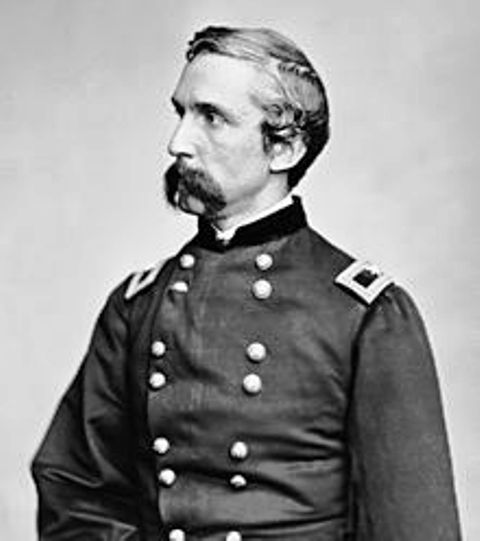
In the movie "Gettysburg” (1993) Jeff Daniels plays Colonel Joshua Chamberlain, Commander of the 20th Maine Volunteer Infantry Regiment. Prior to the battle he addresses a group of Maine soldiers who were from the old 2nd Maine Regiment and have refused to fight because their regiment was disbanded. Colonel Chamberlain tries to convince them, in a moving speech, to rejoin the battle with his regiment. In the end 114 men of the 120 join the 20th Maine in the battle of Gettysburg.
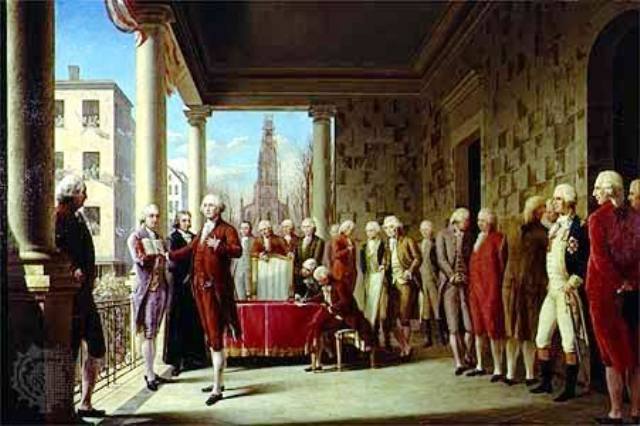
On September 19, 1796, retiring President George Washington established the American precedent of giving a Farewell Address. The 32-page, over 6,000 word habd written address was printed in the Philadelphia's American Daily Advertiser.
After explaining that he would not serve a third term, and had actually wanted to retire after his first term, he thanked the nation for its support that had encouraged him in the face of challenges and criticism. with the transition of leadership, Washington promised that he would pray for the country for the rest of his life that the union would be preserved under the Constitution, administered by wise leaders who would preserve liberty. He primarily wanted to give his advice concerning the lurking dangers and the top priorities for the national well-being.
Click here to read George Washington's Farewell Address.
.jpg)
